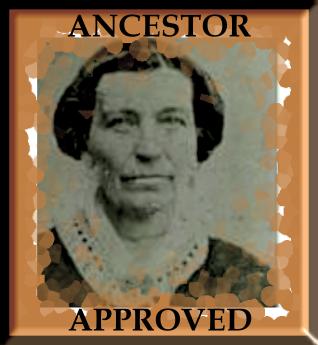
My earliest memories of my paternal grandfather, Martin Luther Ford, are of him sitting on his porch in the projects in the French Quarters of New Orleans. He was as white as any white man I’d ever seen, but I never questioned why he looked so different from my brothers and sisters and me, all cocoa-colored. My dad, while somewhat darker, more café au lait than his creamy-skinned father, still favored Grandpa Ford so there was no question we were all related. Plus, Grandpa sounded like the rest of our New Orleans aunts, uncles and cousins with that same maple syrup speech that liked to drive you crazy if you were in a hurry.
It wasn’t until I was 12 that Grandpa’s pearl white skin and pin straight black hair sufficiently provoked my interest to ask him about it.
That summer, he visited us for the first time. (I think it was the first time he ever crossed the Mason Dixon line.) Grandpa was in his late 70s by then, legally blind although he insisted he could see, and spent most days at the senior center while my parents were at work. It was up to me to entertain him and make sure he didn’t burn the house down in the two-hour gap between when the senior center bus dropped him at the end of our driveway and my mother came home from work. He mostly listened to baseball on the radio or made small-talk about the weather. As a pre-teen, I wanted nothing to do with adults, let alone a senior one with a drawl and bad hearing, but his complexion and the story that had to come along with it intrigued me as the summer and his visit wore on.
One day he brought me home a hand-painted macaroni necklace from the senior center, slipped it over my head as I gave him a tall glass of iced tea and said, “I made a little somethin’ for ya sugah.” Suddenly, I had the courage to ask him what I’d wondered about all summer long.
“Grandpa, are you white?””
He laughed and said that he wasn’t white but that he used to pretend to be in order to get better paying jobs in then segregated New Orleans. He said his grandfather was a white man, a pecan farmer named Stuart and that his grandmother, Tempe “worked” on his plantation.
That was an interesting way of putting it.
I knew enough about American history to understand that black people in the south at that time weren’t paid workers. They were slaves. Soaring on my new-found courage from my necklace, I asked Grandpa outright, “was your grandmother a slave?” Grandpa looked dreamy. I don’t know if it was the cataracts which turned his eyes a cloudy blue or if he was caught up in his memories, weaving from the gritty cobblestone New Orleans streets where he delivered groceries to the acres of pecan trees that surrounded him in Ocean Springs, Mississippi where he grew up, the same place where his grandfather raised pecans. Whatever the reason, he never answered me directly about Tempe being a slave, but he did tell me other things.
He’d lived on some of Stuart’s property and my dad and his brother’s and sisters had been raised on Stuart property too. The house was big enough that he rented out rooms to other families in order to pay the taxes. Ultimately, the renters didn’t generate enough income and the Stuart house and land was turned over to the state of Mississippi. Grandpa told me that Stuart’s wife could not have children, and that Mrs. Stuart was very religious. Indeed she did donate a lot of money to help build St. Paul’s Methodist church in Ocean Springs, Mississippi.
I had to find out through Ocean Springs historian, Ray Bellande that Tempe was a slave, given as a wedding gift to Stuart’s wife from her family. After the civil war, Mrs. Stuart freed Tempe and gave her a job as a cook. Tempe stayed on as a cook and loyal companion to Elizabeth Stuart until the woman died in 1925. Tempe died a few months after her long-time proprietor and employer at age 105.
That afternoon in the cool belly of our basement, I stumbled across an unknown and unexplored part of our family history. Our ancestors were both slaves and masters, African and Scottish, maybe even the descendants of the Royal Stuarts, as in Mary Queen of Scots.
But I wouldn’t delve into all the specifics on that humid day in 1983. My nascent journalistic skills didn’t know to ask Grandpa what his mother looked like, if he’d ever met his grandmother Tempe, if she and Stuart had other kids and how he felt about his grandfather also being his grandmother’s master. My interests in my ancestry were as unpredictable and scattered as my teenage hormones. The next time I saw my grandfather, two years later, I cared a lot more about the color of my hair and if a boy would ever like me with those braces on my teeth than anything about my family history. He died a few years later and I presumed the answers to my questions died with him – until the Internet came along. That’s where I connected with my fourth cousin, another Tempe and Stuart descendant. She promises to guest blog soon. How’s the search for your roots coming?

![STUART PAPERS in SEPIA[1]](https://dionneford.files.wordpress.com/2010/09/stuart-papers-in-sepia1.jpg?w=500)





